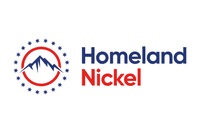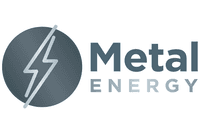Squeezed by Weak Prices, Norilsk Nickel Plans Overhaul
Like many other major miners, today’s weak pricing environment has forced Russia’s Norilsk Nickel to rethink its focus and overhaul its operations.
Norilsk Nickel (MCX:GMKN) is unique in many ways, not least because it is the world’s largest nickel and palladium producer.
However, in at least one aspect, Norilsk is exactly like many other major miners: today’s weak pricing environment has forced it to seriously overhaul its focus.
H1 results release
Norilsk released its unaudited financial results for the first half of 2013 at the end of August, describing them as “robust” despite the “turbulent macro environment and weakening commodities prices.”
However, a closer look at the company’s report reveals a less-than-rosy picture — Norilsk’s revenue came in at US$5.6 billion, a 6.1-percent decrease year-on-year, due to “weak metal prices and lower sales volumes of nickel and platinum.”
Even more dishearteningly, the company’s net profit totaled $545 million, a whopping 63-percent decline compared to this time last year, on the back of $636 million worth of non-cash write-offs. Net profit excluding those write-offs came to $1.2 billion, still 21 percent less than the year-ago period.
Looking specifically at nickel, Norilsk’s revenue from the metal came to $2.2 billion, 17 percent less than the first half of 2012, as a result of average realized nickel prices falling 12 percent, to $16,401 per metric ton. Norilsk also suffered a 6-percent fall in physical nickel sales volume.
Overhaul plans
Unsurprisingly, Norilsk announced less than two weeks later that the company’s game plan is in need of an overhaul.
The Financial Times quotes Vladimir Potanin, the company’s chief executive and, at 30 percent, its largest shareholder, as saying that Norilsk has hired western consultants, including McKinsey & Company and the Boston Consulting Group, as advisors.
Elaborating on what he sees as the company’s problems, Potanin commented, “[t]o put it simply, the company should become more modern. It’s still working like a Soviet ministry.” In other words, Norilsk has until now “had the Soviet habit of state planning. We built everything with a long-term perspective and didn’t care about what efficiency was reached at each stage.”
To combat those issues, Norilsk will move away from projects that take upwards of a decade to complete and begin focusing on short-term projects that can be completed “within two years and have an internal rate of return of at least 20 per cent,” according to the Financial Times.
Explaining that plan more bluntly, Pavel Fyodorov, the company’s deputy chief executive, said that Norilsk plans to work on “Tier 1″ assets and will “get rid of assets that do not meet [its] Tier 1 objectives,” as per The Moscow Times. Assets that meet those criteria include Norilsk’s Polar operations on the Taimyr Peninsula, which, the news outlet notes, already account for the bulk of its production. Among others, the company’s Australian assets, including four idled nickel mines, do not fit the bill.
Market watchers can also expect to see Norilsk focus more heavily on platinum-group metals and copper.
The fallout
While Norilsk has yet to post production and capital expenditure numbers to accompany its new strategy — those are set to be announced in the fourth quarter of this year — it has already hinted that its dividend payments will take a hit.
The company has paid $1.9 billion in dividends for 2012, and, according to Reuters, “was expected to declare at least $3 billion for 2013 and the same amount for 2014.” Now, however, Potanin has said that adjustments will need to be made, though he declined to say when that will happen. Cuts in that department are expected to most affect aluminum giant United Company RUSAL (EPA:RUSAL), a Norilsk shareholder with net debt of about $10 billion.
The bright side of the situation is that Norilsk is still profitable, unlike as much as half of the global nickel sector. For that reason it provides a potent example for other struggling nickel companies: survival means being willing to change tactics — and doing so sooner rather than later.
Securities Disclosure: I, Charlotte McLeod, hold no direct investment interest in any company mentioned in this article.
Related reading:
Nickel Prices Down, But Not Out



